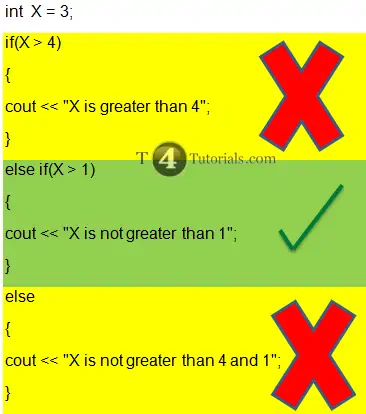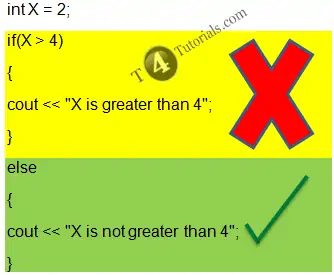Conditional Statements in C++
C++ supports the conditional statement. Some examples of conditional statements are mentioned below;- Equal to: X == Y
- Greater than: X > b
- Greater than or equal to: X >= Y
- Less than: X < Y
- Less than or equal to: X <= Y
- Not Equal to: X != Y
Statements in the boy of “if” will execute, when the given condition is true
|
1 2 3 4 5 |
int X = 6; if(X > 4) { cout << "X is greater than 4"; } |
Statements in the boy of “else” will execute, when the given condition in the “if” part is false.
Statements in the boy of “else if” will execute, when the given condition in “if” part is false and the condition in “else if” part is true.

Exercise of If else statements (50+ Programs)
switch conditional statement is used to specify many alternative blocks of code to be executed.
Exercise of switch statements (50+ Programs)




